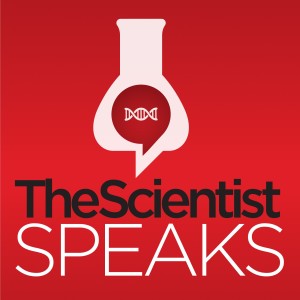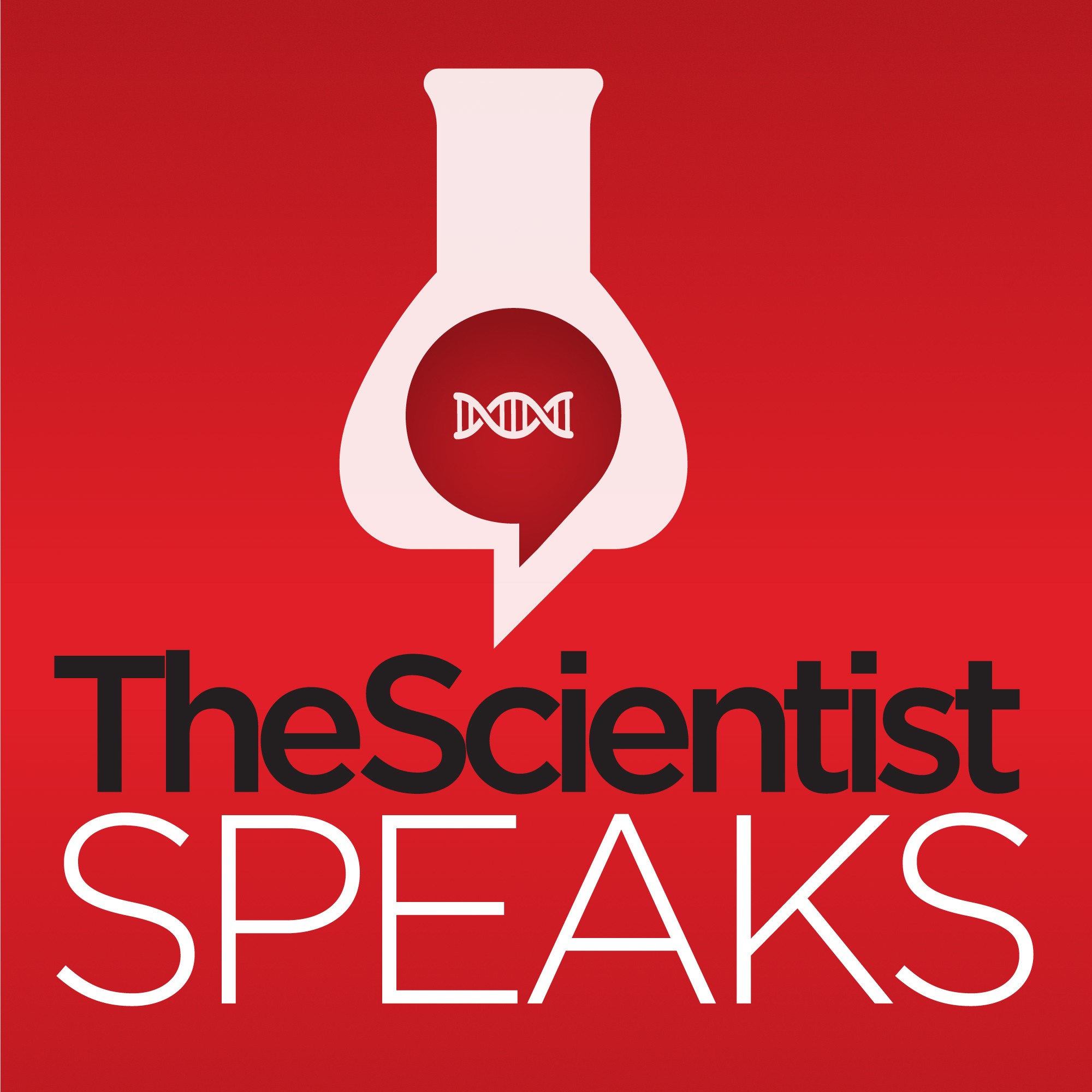Episodes

Monday Nov 24, 2025
Harnessing Artificial Intelligence to Fight Infectious Diseases
Monday Nov 24, 2025
Monday Nov 24, 2025
In 1928, Sir Alexander Fleming uncovered penicillin, an antibacterial compound that would alter the course of medicine. By the 1940s, this miracle drug entered clinical use, and humanity began to rely on penicillin and other antibiotics to treat once-lethal bacterial infections. Despite this success, bacteria continue to threaten global health as antibiotic-resistant strains emerge and spread. Scientists now race against time to develop new antimicrobial drugs before bacteria gain the upper hand. Fortunately, researchers have found a powerful ally: artificial intelligence.
In this episode, Charlene Lancaster from The Scientist spoke with César de la Fuente, a presidential associate professor at the University of Pennsylvania, to learn how his team is leveraging AI to discover novel antibiotics from unique sources, including spiders, archaea, woolly mammoths, and ancient and modern humans.
The Scientist Speaks is a podcast produced by The Scientist’s Creative Services team. Our podcast is by scientists and for scientists. Once a month, we bring you the stories behind news-worthy molecular biology research.

Wednesday Aug 27, 2025
The Future of Gene Editing with Programmable Recombinases
Wednesday Aug 27, 2025
Wednesday Aug 27, 2025
Before CRISPR-based methods took center stage in the genome editing field, other bio-inspired tools such as zinc finger nucleases and Cre-lox system recombinases made genomic engineering possible. Some researchers are now looking back to these foundational technologies to improve upon and one-up the latest gene editing techniques.
In this episode, Deanna MacNeil from The Scientist spoke with Frank Buchholz, professor and head of the medical systems biology translational research group at the Technical University of Dresden’s University Cancer Center, to explore how his laboratory designs programmable recombinases for high fidelity gene editing.
The Scientist Speaks is a podcast produced by The Scientist’s Creative Services Team. Our podcast is by scientists and for scientists. We bring you the stories behind news-worthy molecular biology research. This episode is brought to you by Oxford Nanopore.

Friday Aug 01, 2025
Rise of the Nanorobots
Friday Aug 01, 2025
Friday Aug 01, 2025
For centuries, people have relied on materials such as concrete, steel, and wood for the construction of buildings, bridges, and other structures. However, researchers have started exploring a far less conventional material for building therapeutics at the molecular level—DNA.
In this episode, Charlene Lancaster from The Scientist spoke with Björn Högberg, a professor of biophysics at the Karolinska Institute, to learn how his team is developing DNA-based nanorobots to fight cancer.
The Scientist Speaks is a podcast produced by The Scientist’s Creative Services team. Our podcast is by scientists and for scientists. Once a month, we bring you the stories behind news-worthy molecular biology research. This month's episode is sponsored by Crown Bioscience.

Wednesday Apr 30, 2025
All the Feels: The Emerging Neuroscience of Gut Touch
Wednesday Apr 30, 2025
Wednesday Apr 30, 2025
Deep within the gut’s epithelial layer are specialized sensory cells that convert mechanical stimuli to electrical signals and convey this information to nerve cells. As researchers home in on the basic mechanisms of gut touch, the concept of gut feeling is taking on new significance and providing hope for the millions of people living with gastrointestinal disorders.
In this episode, Iris Kulbatski from The Scientist spoke with Arthur Beyder, a gastroenterologist and biomedical engineer at the Mayo Clinic to learn more about his team’s research on the emerging neuroscience of gut touch.
The Scientist Speaks is a podcast produced by The Scientist’s Creative Services Team. Our podcast is by scientists and for scientists. Once a month, we bring you the stories behind news-worthy molecular biology research.

Wednesday Feb 26, 2025
From Development to Regeneration: The Power of Bioelectricity
Wednesday Feb 26, 2025
Wednesday Feb 26, 2025
Bioelectrical gradients guide embryonic development by creating an electrical scaffold for tissue and organ growth. Researchers harness the power of bioelectricity to devise strategies for regenerating various tissues, including promoting brain recovery after stroke.
In this episode, Iris Kulbatski from The Scientist spoke with Paul George, a physician scientist in the Department of Neurology at Stanford University, to learn more about his team’s research on bioelectricity for stroke recovery.
The Scientist Speaks is a podcast produced by The Scientist’s Creative Services Team. Our podcast is by scientists and for scientists. Once a month, we bring you the stories behind news-worthy molecular biology research.

Wednesday Dec 18, 2024
Circumventing Cancer Resistance
Wednesday Dec 18, 2024
Wednesday Dec 18, 2024
Traditional and new cancer therapies often become stymied due to tumor resistance, but why resistance arises and how to avoid it remain important questions in the cancer research field. To uncover the ways tumors form, adapt, and ultimately resist treatment, scientists investigate how genetic mutations arise and drive cancer cell evolution.
In this month’s episode, Deanna MacNeil from The Scientist spoke with Bishoy Faltas, an associate professor of medicine, and cell and developmental biology, and chief research officer of the Englander Institute for Precision Medicine at Weill Cornell, to explore bladder cancer evolution and treatment resistance.
The Scientist Speaks is a podcast produced by The Scientist’s Creative Services Team. Our podcast is by scientists and for scientists. We bring you the stories behind news-worthy molecular biology research.

Wednesday Nov 20, 2024
Advances in Cell Therapy for Restoring Vision
Wednesday Nov 20, 2024
Wednesday Nov 20, 2024
Retinal neurons derived from human stem cells are a promising source of replacement cells for regenerating damaged or diseased retinas. As scientists progress toward translation of cell therapies for restoring vision, they encounter challenges, including how to deliver the cells, ensure that they integrate appropriately with host tissue, and enable proper function after transplantation.
In this episode, Iris Kulbatski from The Scientist spoke with Deepak Lamba, a distinguished scientist in the department of immunology and regenerative medicine at Genentech and an associate adjunct professor at the University of California, San Francisco, to learn more about how advances in cell culture models and associated technologies help researchers progress towards retinal cell therapy.
The Scientist Speaks is a podcast produced by The Scientist’s Creative Services Team. Our podcast is by scientists and for scientists. Once a month, we bring you the stories behind news-worthy molecular biology research. This month’s episode is sponsored by Bio-Rad.

Thursday Oct 31, 2024
Smelling Illness: Volatile Organic Compounds as Neurological Disease Biomarkers
Thursday Oct 31, 2024
Thursday Oct 31, 2024
Early diagnosis and treatment of Parkinson’s disease is critical to slowing its progression. Long before neurological symptoms appear, patients exhibit early signs, some of which are associated with specific chemical scent signatures known as volatile organic compounds. Researchers study these as early biomarkers of disease for future diagnostics applications.
In this episode, Iris Kulbatski from The Scientist spoke with Drupad Trivedi, a University of Manchester biomedical researcher and lecturer in analytical and measurement science, to learn more about how fatty skin secretions in Parkinson’s disease and one woman’s sensitive nose may lead to early detection and intervention.
The Scientist Speaks is a podcast produced by The Scientist’s Creative Services Team. Our podcast is by scientists and for scientists. Once a month, we bring you the stories behind news-worthy molecular biology research.

Wednesday Sep 25, 2024
Understanding the Role of Autophagy in Infectious Disease
Wednesday Sep 25, 2024
Wednesday Sep 25, 2024
Just like people declutter their homes to prevent the accumulation of broken or unwanted items, cells use autophagy to maintain homeostasis. This essential cleaning process enables them to capture and degrade unnecessary or dysfunctional macromolecules, such as damaged organelles, protein aggregates, and microbial pathogens. As a result, autophagy is a fundamental defense mechanism employed by cells to control and clear viral infections.
In this episode, Charlene Lancaster from The Scientist spoke with Josephine Thinwa, an assistant professor in the departments of internal medicine and microbiology at the University of Texas Southwestern Medical Center, to learn more about the importance of autophagy in mitigating viral infections and how understanding this process could help physicians treat a rare neurodevelopmental disorder.
More on this topic: Macrophages Curtail Tuberculosis
The Scientist Speaks is a podcast produced by The Scientist’s Creative Services team. Our podcast is by scientists and for scientists. Once a month, we bring you the stories behind news-worthy molecular biology research.

Wednesday Aug 28, 2024
Linking Fasting to Health and the Gut Microbiome
Wednesday Aug 28, 2024
Wednesday Aug 28, 2024
Gut microbes affect humans in many ways, including altering the gastrointestinal tract’s function and influencing a person’s body weight, and the nutrients that people ingest can affect the microbiome. Researchers now ask how popular weight loss strategies involving calorie restriction change the bugs in our guts and human health overall.
In this episode, Niki Spahich from The Scientist spoke with Alex Mohr, a postdoctoral fellow in the Biodesign Center for Health Through Microbiomes at Arizona State University, about his work comparing the effects of calorie restriction versus intermittent fasting with protein pacing on the gut microbiome, weight loss, and other health indicators.
More on this topic https://www.the-scientist.com/you-are-when-you-eat-71487
The Scientist Speaks is a podcast produced by The Scientist’s Creative Services Team. Our podcast is by scientists and for scientists. We bring you the stories behind news-worthy molecular biology research.

